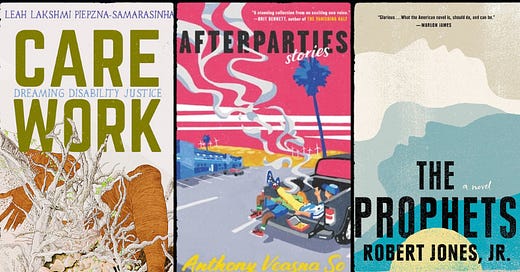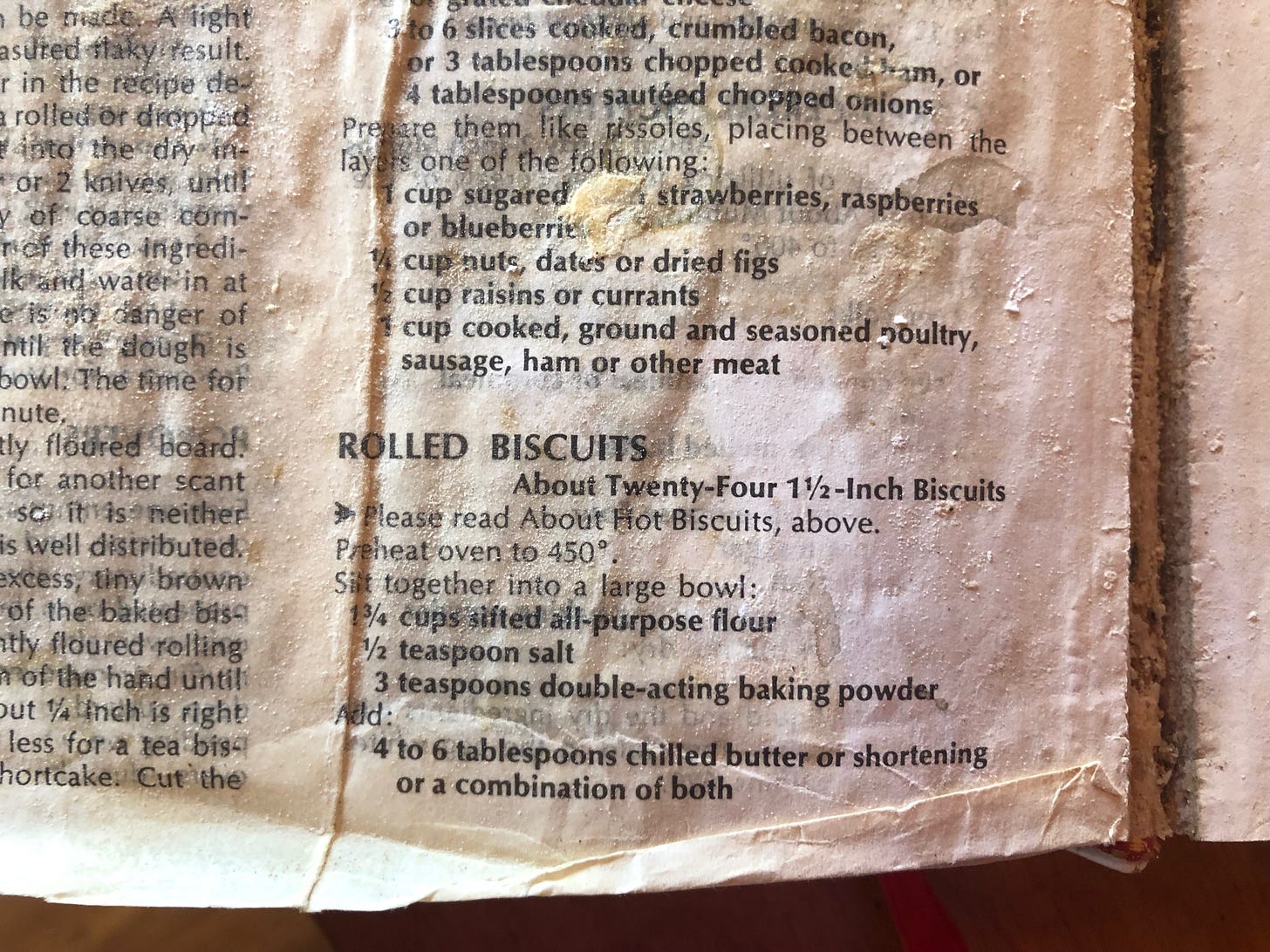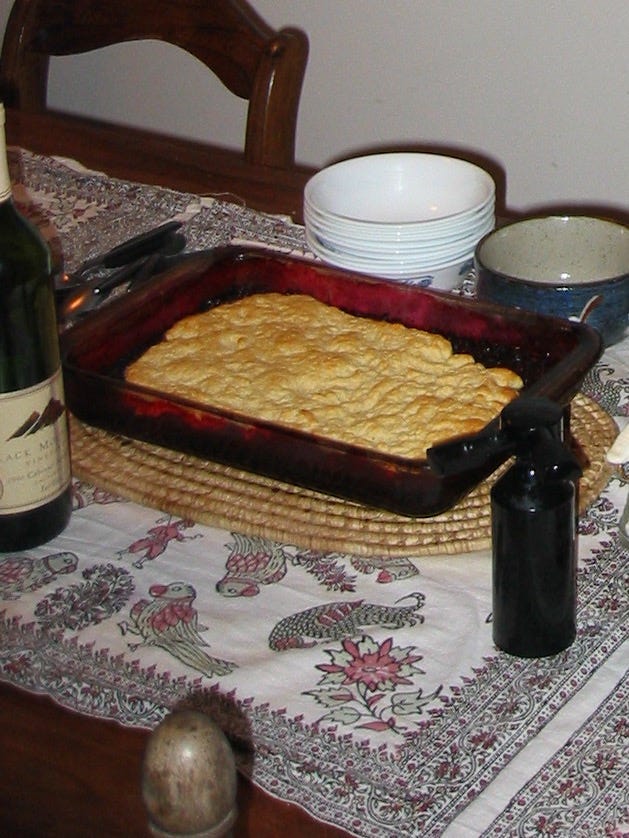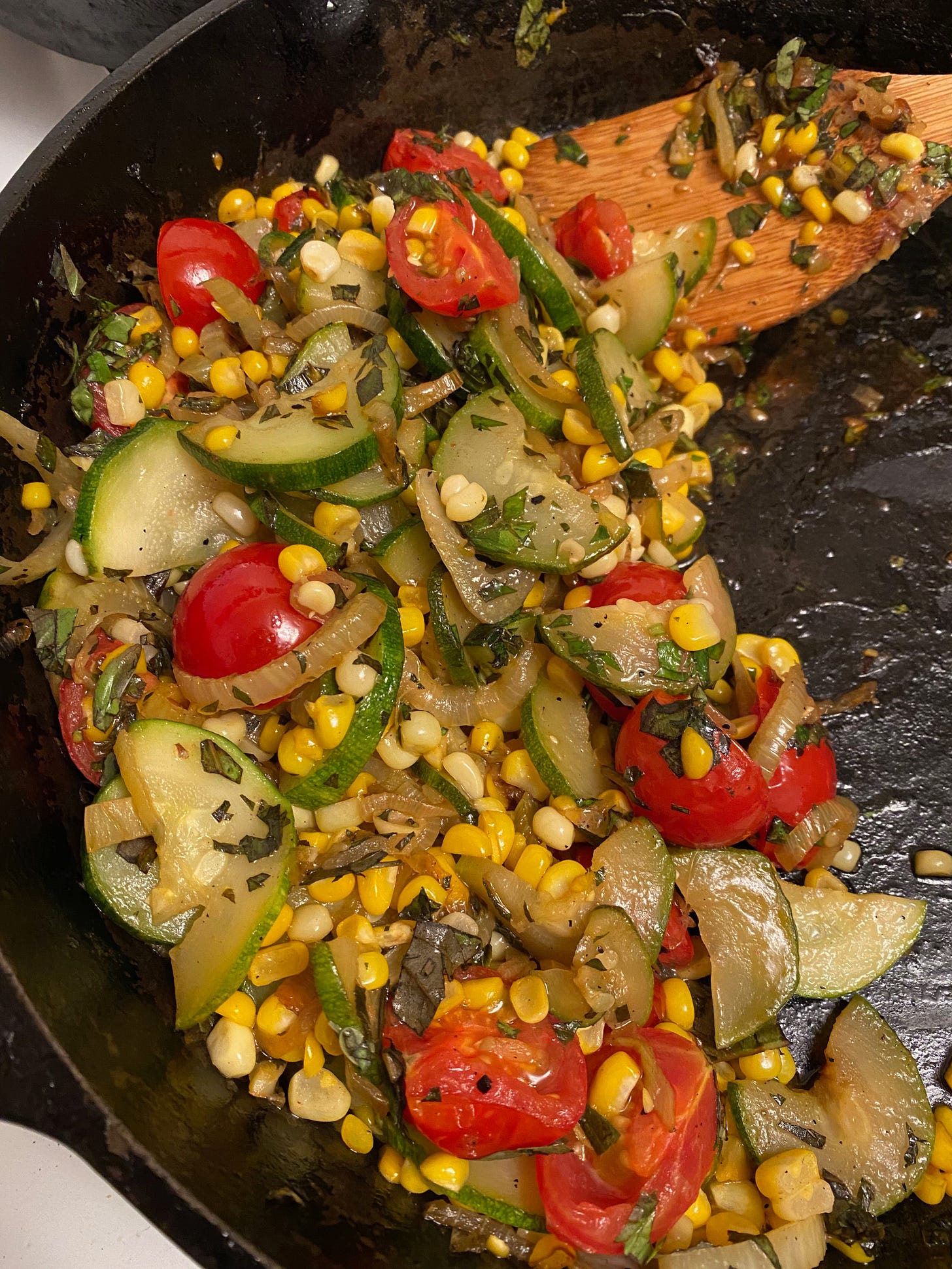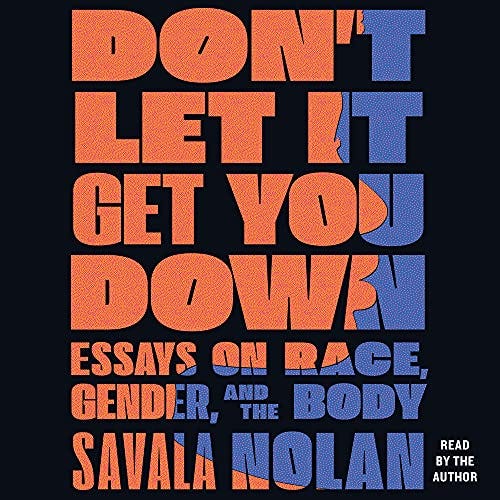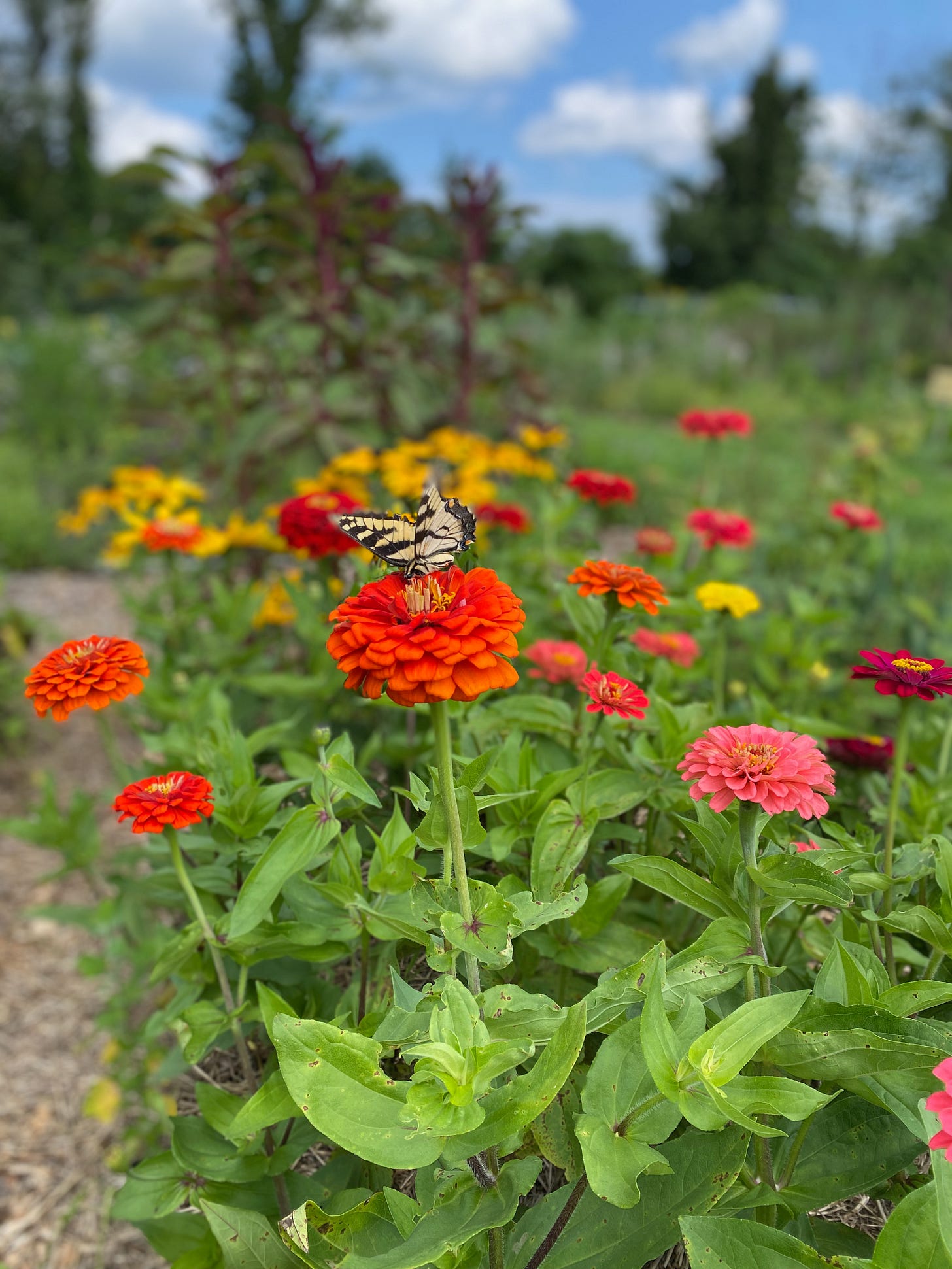Volume 1, No. 20: It's Okay Not to Relate to Everything You Read + My Family's Blueberry Duff
Greetings, book-eaters and treat-lovers! I don’t know how it’s the last week in July already, but it means we’re one week closer to summer being over, so I’m not complaining. Summer is fine (sort of). But fall is a glorious dream of perfection.
A few months ago, I came across this video on Ijeoma Oluo’s Instagram page. In it, she talks about the dangers of white people attempting to “relate” to the experiences of BIPOC people in conversations about racism and racial justice. Before I even watched the video, my mind went somewhere else: books.
People in the book world are constantly talking about relating to books. We talk about characters that are “relatable”. We talk about seeing ourselves reflected in literature. These things are important! But relating to a book is not a prerequisite for loving a book. Unless you only read books by and about people exactly like you (which would be very sad for you, don't do that), it’s impossible to relate to everything you read. And there’s no reason any of us should have to. Relating to a book — intimately understanding a character’s experiences because you’ve experienced something similar — is only one way of interacting with literature. It’s not the only way.
To be clear, when I talk about not relating to books, I’m not talking about white readers saying bullshit things like “but I just can’t relate to this character because she’s South Asian!” That’s not enjoying or appreciating a book without relating to it. That’s just racism. We’re all made up of many intersecting identities and experiences. Of course we can relate to characters who don't share our race, gender, sexuality, religion. But we can’t relate to everything. Some experiences are untranslatable.
So why do we put so much emphasis on whether a book is relatable? There is a danger here, the same danger that Oluo talks about — the tendency white people (straight people, cis people) have to insert ourselves into every book we read in some misguided attempt at empathy. Someone else’s humanity is not dependent on whether or not I can relate to their experience. Relating to a book is not a prerequisite for being moved by it. You don't have to relate to a book in order for it to make you cry or laugh. You don’t have to relate to every book that challenges you or opens you or delights you, amuses you or breaks your heart.
This week’s books have lodged themselves inside my heart forever. I love them with my whole self. They center specific experiences that are not mine, experiences I can’t relate to. That doesn’t mean I don’t love these characters fiercely, or that I didn’t see bits and pieces of myself in these pages. I did and I do. But relating is not the be-all-end-all of reading. Sometimes books call on us to simply quiet down and listen.
The Books
Backlist: Care Work by Leah Lakshmi Piepzna-Samarasinha (Nonfiction)
Feel free to skip my review, and read these reviews from disabled readers instead:
I always love when disabled activist Carly Findlay posts book reviews, and I loved reading her thoughts on this book.
This is a beautiful review on Autostraddle by Bani Amor.
I appreciate these thoughts from Alyse at the criptopia media collective.
This is such a bighearted, fiery, angry, radical, and loving work about disability justice. It challenged me in the best way, opened my heart, created new pathways in my brain, offered me possibilities for new ways of being in the world. Every chapter is revelatory. There is so much in here that I’m working on taking out of these pages and into my life. It’s about building radical frameworks for activism and justice, about the depth and breadth of disability justice movements, and about how access is so much more than eliminating ableist barriers. Obviously eliminating those barriers is important. But Piepzna-Samarasinha explores access as a radical idea, a transformative process vital for our collective liberation. This isn’t surface level stuff, it’s deep, grab-it-at-the-root stuff about movement work, community building, and care work.
I also appreciated the structure. It’s so wise and smart, but it’s not academic. There are essays, interviews, lists, manifestos. Each chapter takes its own form. Sometimes that’s an essay that blends memoir, history, and critique. Sometimes it’s a numbered list of tips for touring while chronically ill. Sometimes it’s a letter. My favorite nonfiction books are the ones that queer the writing itself, and that’s exactly what Piepzna-Samarasinha does here. It’s not a traditionally structured memoir, or book of essays, or work of nonfiction. It’s written in a particular way, a beautiful tapestry woven from sick and disabled BIPOC wisdom and experience.
I always feel humbled reading books like this, books that are not written for me. This is not written for white people or non-disabled people. It’s a celebration of queer and trans BIPOC disabled people, communities, and movements. It’s full of disability joy and wisdom. If, like me, you're a non-disabled person reading this book, be prepared to sit with it. Treat it like the gift it is. There is so much we can all learn from these visions of collective care that actively refute a white supremacist, capitalist, colonial framework.
I’d love to read this book again, slowly (like one chapter a week max). If anyone is interested in doing a joint read and chatting about it, let me know. I’d love that!
Frontlist: The Prophets by Robert Jones Jr. (Historical Fiction)
This novel is a love story between Samuel and Isaiah, two young Black men who find refuge in each other, and the impact their relationship has on the Mississippi plantation where they are enslaved. It is a layered and complicated novel, told from a chorus of POVs. Structurally, it’s daunting, full of shifts and twists and surprising movement. Jones’s prose is gorgeous. There’s a pleasure in the language, a palpable joy in the way he strings words together. In a book that deals with so much brutality, this feels deliberate. It’s the kind of prose that gets called “overwritten”. It does not feel overwritten to me. It feels like Jones is claiming something with his words, taking up space, shoving asides smallness and making room for Black queer love.
I decided to listen to it on audio, because I love the narrator, Karen Chilton. I assumed I could read it the way I usually read audiobooks. I listen to them while doing the dishes, making dinner, driving. I usually listen at 1.5x speed. By the time I realized that I could not listen to this book like that, I was already halfway through it, and just kept going. So I let it wash over me, and then I bought a copy. Whether in print or on audio, this is a book that demands your full attention. It is not meant to be read slowly, or while idly chopping onions. I loved it, but I feel like I just skimmed it. Upon finishing it, my first though was: Okay, I’m going to need to read that one again.
So, instead of reviewing it, I’m going to direct you to some brilliant reviews by Black readers. I’m planning on rereading it this winter, and I suspect I’ll be writing about it more then.
If you read one review of this book, make it Danez Smith’s.
I also loved Naomi Hill’s review.
Two Instagram reviews that stand out for me are from bookstgrammers Jamie M and Jessie.
Upcoming: Afterparties by Anthony Veasna So (Short Stories, Ecco Press, 8/3)
The release of Afterparties is a heartbreaking one, as Anthony Veasna So, the absolutely brilliant author of this work, died last December, at age 28. His book is a gift, utterly singular, and the fact that So isn’t here to see it celebrated is devastating. I don’t have the words for it. Several writers who knew him or his work shared some memories of him in n+1.
Feel free to skip my review and read this beautiful one by by Hua Hsu instead.
This is one of those books I love so much I don’t know how to be coherent about it. I gave it five stars. For the most part, I find star ratings inexact and somewhat arbitrary. I mention it because this is a book of short stories, and I’ve never given a book of short stories five stars before. This book is unprecedented.
Every single story is a masterpiece. Each one is singular, a small world that expands outward from itself, capturing some essential bit of the human universe. Each one is full of movement and depth, humor, sizzling sentences that left me with my mouth open, at once beautifully crafted and artless—artless as in without artifice, authentic, open, unencumbered by convention. So’s prose is full of warmth, affection, despair, wit, cynicism, passion, malaise. His words shimmer and glow, they cut. It's been a long time since I've encountered a narrative voice so alive and assured, both playful and serious.
The stories take place in the Cambodian and Cambodian American community in the Central Valley of California. They’re all about Khmer people, immigrants, many of whom survived the Khmer Rogue and the Cambodian genocide, and their children. The community comes alive in its particulars. And it is so particular. So’s characters are messy, striving, flawed, funny and quirky and full of sorrow and joy and anger and resentment and snark and hope. They are not defined by being Khmer, and they are defined by being Khmer. Maybe that contradiction is the only true way to capture an identity that so deeply affects how a person moves through the world. I don’t know how to put into words the thing that So puts on the page; I don’t think I can. His stories are not mine to tell. What I can put into words is how deeply these stories moved me. They made me laugh and rage and cry.
The places So writes about—an auto repair shop, a donut shop, somebody's backyard, a Cambodian grocery store—are so vivid. Equally vivid are the interior lives of his characters, many of whom are queer. Here are stories about people trying to understand themselves, people caught in cycles of destruction, people trying to escape, falling in love, coming home, wrestling with hauntings. Many of them are about the trauma of displacement and genocide, about what it means to be a survivor of violence or the child of survivors, about what is passed down through generations—trauma, stories, food, pride. The shadow of the Khmer Rogue sits over the book like a physical presence. But, again, it is not only about that. It’s about humanness. It’s about the specific ways that history, family, culture, race, and geography live inside a body. It’s about the ordinary moments that make a life singular, irreplaceable. It is so sad, and so funny.
A great short story can do so many different things. So’s do them all. Some capture a moment of intense change. Some illuminate the hidden truths of a person not visible from the outside. In some, So leaves his characters on a precipice, and in others, they open a door and walk through it. Every one is perfect.
The Bake
This week’s recipe is the opposite of this week’s books. It’s an old family recipe, and one of my most beloved desserts. Essentially, it’s a blueberry cobbler. Except that it isn’t cobbler, because it’s duff. So don’t call it a cobbler, please (at least not in front of me). My family has been debating the origins of the word “duff” for years. A quick internet search informs me that blueberry duff is a steamed blueberry pudding from Newfoundland. That sounds interesting, but it is not my family’s duff. Our recipe comes from my mom’s side of the family, and I’ve always assumed that duff is an old Yankee word, but there is no evidence to support that claim. It’s a mystery, and it’s delicious.
My mom uses the Joy of Cooking biscuit dough for the topping, and I just need you to see the photo of the cookbook page she sent me, because it is a testament to so much love and so many duffs:
My Family’s Blueberry Duff
When I was texting with my mom about this recipe, and I asked her what size pan she uses, here’s what she said: “I use whatever pan fits the amount of berries I have without the berries looking skimpy. A lot of berries more important than a lot of dough. It’s very intuitive.” So this recipe is a guide. Dig around in your cupboards and use the pan that speaks to you. An 8x8 square pan should work well.
Ingredients:
6 cups blueberries (You need at least 6 cups. I know this because it’s the number we’d always strive to get when picking blueberries as kids. If we got 6 cups, or even better, 12, we could make duff. Anything less than 6 is not enough. Feel free to use more.)
2 Tbs sugar
1 3/4 cups (210 grams) all-purpose flour
1/2 tsp salt
1 Tbs baking powder
6 Tbs cold butter, cubed
3/4 cup milk
Preheat the oven to 350. Gently mix the berries with the 2 Tbs sugar and pour into a glass baking dish.
To make the topping, combine the flour, salt, sugar and baking powder in a medium bowl. Add the cubed butter and mix with your fingertips or a pastry cutter until it resembles coarse meal. Pour in the milk and mix just until it comes together.
Drop dollops of the topping over the blueberries. Don’t worry if it’s uneven or if there are bare spots. Bake for about 35 minutes, until the top is golden brown and the berries are bubbling. It is not required that you serve it with vanilla ice cream, but I strongly encourage it.
I didn’t manage to make a duff this week, but please enjoy this photo my dad sent me from 2003:
The Bowl & The Beat
The Bowl: High Summer Veggie Bowl
These days, whenever I make a tasty meal that isn’t eggs on toast (I truly love eggs on toast, but I just can’t eat it for dinner six days in a row), I feel like I should get a prize. I love cooking. But when I’m in the middle of a transition (hello, moving) or a big change (hello, new career) my motivation to cook is the first thing that goes. The point is: I sautéed some veggies and cooked some polenta and it was delicious and I am proud.
Heat some butter or olive oil in a medium skillet. Thinly slice an onion and toss it in. Thinly slice a bulb of fennel and add that. Toss in some pressed or minced garlic. Cook on medium heat for 10-15 minutes, until the veggies are soft and glistening. Slice a zucchini into half moons and toss it in. Meanwhile, cut some corn off the cob (I used 6 ears) and cut some cherry tomatoes in half (a pint or so). Once the zucchini is just cooked, toss in the corn and tomatoes. Cook just to heat through, a minute or so.
I ate this with cheesy polenta, cubed mozzarella, and plenty of fresh basil on top. Yum.
The Beat: Don’t Let It Get You Down by Savala Nolan, read by the author
I just finished this a few days ago and I loved it. Nolan writes about being a Black mother, about fatness, about the white men she dated as a young woman and how those relationships were a form of self-erasure, about the the complexities of mixed-race identity. My favorite essays included “To Wit and Also” in which she reaches through history toward the Black women enslaved by her white ancestors, and “Dear White Sister”, which documents the collapse of long-standing friendship with a white woman. It’s both a searing critique of white feminism and a beautiful assertion of self. Nolan’s narration is wonderful, too. I love listening to essay collections on audio, and this is a new favorite.
The Bookshelf
The Library Shelf
I got a little carried away over the weekend and may have requested 20ish queer graphic novels and memoirs. The first batch came in last night and I am so excited to dive in. I’m also planning to participate in The Sealey Challenge in August, so I picked up a few poetry collections while I was at the library. Books! I love them!
The Visual
I’ve recently gotten into the habit of filling up online shopping carts with books. There’s no way I’ll be able to buy them all, but I like thinking about buying them—online window shopping, I guess. The other day I filled a cart at one of my local indies with books I’ve read and loved this year and want to own. These are books I read either on audio, via the library, or as digital ARCs that I know I want to revisit. It’s a nice way to keep track of paperback releases to look forward to!
Around the Internet
My review of Summer Fun is up on BookPage, in case you missed me jumping up and down about it a few weeks ago.
Now Out
Hooray! Summer Fun by Jeanne Thornton is now out! It’s one of my favorite reads of the year so far. (See above.)
The Boost
Sins Invalid is a disability justice and performance art organization that I first learned about in Care Work. They are super rad and you should check them out.
Arsenal Pulp Press is having a sale in honor of Disability Pride Month. You can buy Care Work (and a bunch of other amazing books) for 25% off.
Speaking of Black queer love, this book looks absolutely stunning.
This interview with five Cambodian American writers, including Anthony Veasna So, is worth a read. “There is no way to undo history. We cannot outrun the genocide, even if we never lived through it ourselves. But we can dream and radically imagine the possibilities of our people beyond trauma. I believe the Cambodian narrative is ready to get out of the mud, to transmogrify the lotus into something as unexpected as snow.” (Monica Sok)
As always, a little bit of beauty to send you on your way: I checked in on my community garden plot the other day, and this is what I found.
And that’s it until next week! Catch you then.

